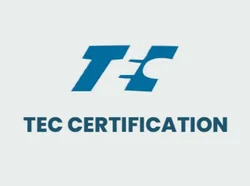In a significant move aimed at strengthening consumer safety and promoting higher product quality, the Government of India has mandated that all solar water heaters—whether manufactured domestically or imported—must now carry certification from the Bureau of Indian Standards (BIS).
This directive, issued under the Solar Thermal Systems, Devices and Components (Quality Control) Order, 2024, marks a major policy step in ensuring consistency and reliability across the solar thermal sector.
Why This Matters
India’s solar water heater industry is rapidly expanding, with an annual market size nearing ? 700 crore and a growth rate of 10–15%. While this growth is encouraging, it has also opened the door to an influx of low-quality products. These substandard systems not only compromise performance but can also pose safety risks to consumers.
By enforcing BIS certification, the government is addressing these concerns head-on. The aim is clear: to ensure that every solar water heater in the Indian market meets established quality and performance standards.
Key Features of the Regulation
- Mandatory BIS Certification
All solar water heaters must conform to relevant Indian Standards and carry the BIS mark to be sold legally in India. This applies to both flat plate collectors and evacuated tube systems, including their major components such as storage tanks.
- Applies to All Stakeholders
The mandate applies across the board—to Indian manufacturers, importers, and distributors.
- Regulatory Oversight
The Ministry of New and Renewable Energy (MNRE), in collaboration with the Solar Thermal Federation of India, has set the technical guidelines. BIS will carry out regular inspections and market surveillance to ensure compliance.
- Enforcement Under BIS Act, 2016
Non-compliance can lead to strict penalties as per the BIS Act, reinforcing the seriousness of this new quality control framework.
What This Means for the Industry
For consumers, this development is a win. They can now expect better-quality products that are safer, longer-lasting, and more efficient. For the industry, it’s both a challenge and an opportunity. Companies will need to align their products with BIS standards if they wish to remain in the market. However, those who meet the criteria will gain a competitive edge, bolstered by consumer trust and regulatory approval.
This move is also expected to support the growth of domestic manufacturers by creating a more level playing field and reducing the influx of cheaper, lower-quality imports.
Moving Toward a Sustainable
Future
This mandate places India in line with other global leaders who prioritize quality and safety in their clean energy sectors. It’s a clear message that the country is serious about advancing its renewable energy goals—not just by expanding capacity, but by ensuring that products meet the highest standards.
As India continues its transition to a greener energy future, ensuring quality in every component of that transition is crucial. The BIS certification requirement is a major step in the right direction.











